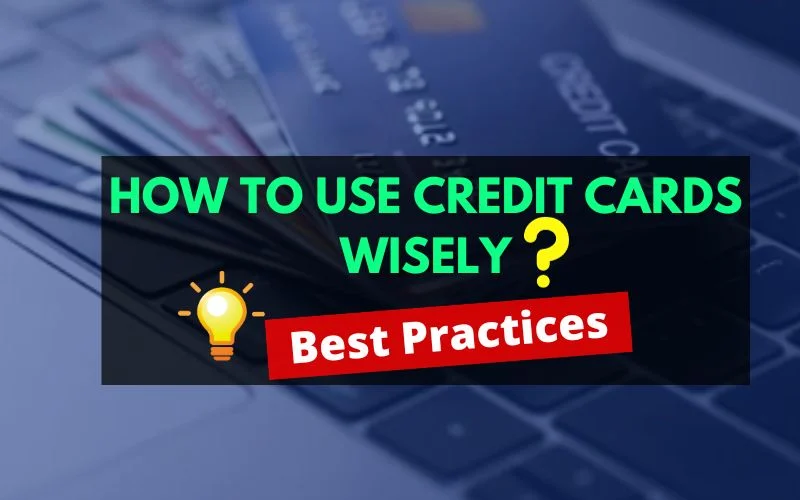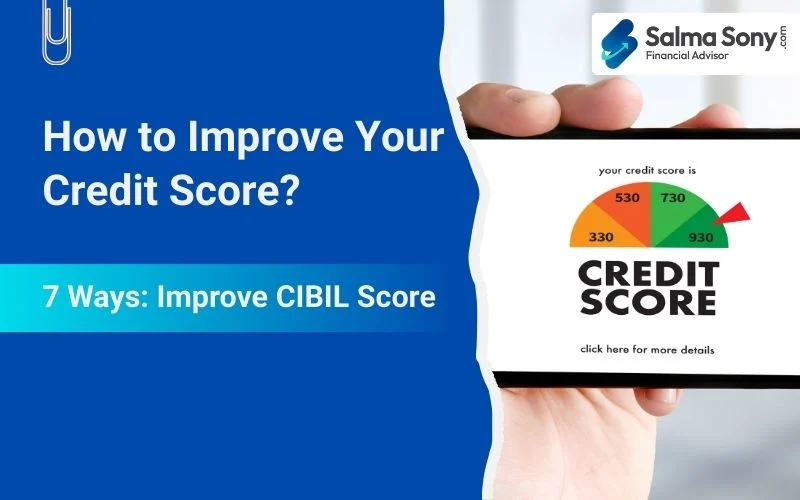A credit card can be a savior if used wisely and can take a toll on your finances if used carelessly. In this article, we will learn how to use credit card wisely; by understanding the do’s and don’ts, you can leverage the benefits of credit cards while avoiding common mistakes.

Understanding Credit Cards
Before getting into the best practices on how to use credit wisely, it’s essential to have a fundamental understanding of credit cards.
What is a Credit Card?
A credit card is a plastic money issued by a financial institution that allows you to borrow money for purchases and pay it back later. In short, it’s a short-term loan where you don’t pay any credit interest if you pay the whole amount within the due date; however, you pay a hefty interest rate (24-50%) if not paid on time.
How Do Credit Cards Work?
When you use a credit card, you borrow money from the issuer (primarily banks). Assume you have an HDFC Credit card and you swiped Rs. 10,000.
If you were using a Debit card, you would have paid immediately by debiting the balance from your bank account.
However, in the case of credit cards, the bank is paying on your behalf, and you must repay the bank by the due date, typically with interest if you don’t pay the entire balance. If you only make a minimum payment, interest will accrue on the remaining balance.
Benefits of Using Credit Cards Wisely
Convenience
Credit cards offer convenience and flexibility, allowing you to purchase online or in person without carrying large amounts of cash.
Rewards
Credit card rewards, such as cashback, points, and miles, can be lucrative. By using your card for everyday expenses, you can earn rewards and can use it for travel, gift cards, or even cashback.
Emergency Funding
Credit cards can serve as a financial safety net in emergencies. If you encounter unexpected expenses, your credit card can help with immediate funding. Then, later, you can utilize an invested emergency fund.
Build and Improve Credit
Credit cards can help you build and improve your credit score. Consistently making payments within the due date can boost your creditworthiness, making getting loans at lower interest rates easier.
Types of Credit Cards
There are several types of credit cards in India that might confuse you. Hence, listing down the common ones:
- Standard Credit Cards: It is basic credit card suitable for everyday use. They typically come with a standard credit limit and offer features such as reward points, discounts, and cashback on specific categories like dining, fuel, or shopping.
- Premium Credit Cards: Premium credit cards offer higher credit limits and exclusive benefits. They often provide access to airport lounges, concierge services, and premium rewards programs. Annual fees for these cards are usually higher.
- Travel Credit Cards: A credit card best suited for frequent travelers. These cards offer benefits like travel insurance, air miles, hotel discounts, and airport lounge access. They are an excellent choice for individuals who travel frequently for business or leisure.
- Cashback Credit Cards: These cards reward cardholders with a percentage of the money spent on their card as cashback. They are famous for everyday expenses, such as groceries, utility bills, and dining.
- Fuel Credit Cards: These cards are for individuals who spend significantly on fuel. They offer cashback, discounts, or rewards specifically for fuel-related expenses.
- Shopping Credit Cards: Shopping credit cards are ideal for those who frequently shop online or at retail stores. They provide discounts, cashback, or reward points for shopping-related expenses.
- Business Credit Cards: These cards are for business owners and professionals for better cash flow management.
- Student Credit Cards: These cards are specifically tailored for students and typically come with lower credit limits and some banks issue against fixed deposits.
- Reward Points Credit Cards: These cards offer reward points for every purchase made, which can be redeemed for various benefits like gift vouchers or cashback.
If you are planning to apply for a credit card, then it’s essential to choose a credit card that aligns with your spending habits and lifestyle. Carefully review each card’s terms and conditions, fees, and rewards to make an informed decision that suits your needs.
Best Practice – How To Use Credit Card Wisely
Now that we understand the benefits and types of credit cards let’s explore best practices for using them wisely.
Create a Budget
Budgeting is an essential part of money management. With the freely available credit card, creating a budget before applying for your credit card has become even more necessary. Budgeting can help you track your income and expenses, ensure you don’t overspend, and help you avoid getting into a debt trap.
Use Credit Cards for Responsible Purchases
While using your credit card for everything is tempting, it’s best to avoid any unnecessary purchases as it may lead you into a debt trap. Whenever you get tempted to buy something, ask one question- do you need it? This one question will help you avoid any unnecessary purchases.
Be Mindful of Credit Utilization
Not utilizing more than 30% of your limit is a good practice. Keeping this ratio low (ideally below 30%) is crucial for maintaining a good credit score.
For example, if you have a credit card with a limit of Rs. 1 lakh, you should ideally not utilize more than 30,000 credits to maintain a good credit score.
If you use a credit limit of Rs. 20,000 out of Rs. 1 lakh, your credit utilization ratio is 20%. Here is how you can calculate:
Credit Utilization = 20,000/1,00,000 = 20%
Monitor Your Statements
It is crucial to regularly review your credit card statements to check for unauthorized charges or errors. If you spot any discrepancies, promptly report them to your card issuer before making the due payments.
Avoid Smart EMI payment.
You will often find banks will give you Smart EMI payments for your due balances. It is one of the most giant traps for one to fall into a debt trap. Always opt for full due payment within the due date to make the best use of your credit card.
Pay Your Balance in Full
The most crucial rule for responsible credit card use is to pay your full balance every month before the due date; this ensures you don’t incur interest charges, saving you money in the long run by accumulating reward points.
💡Pro Tip: Don’t wait until the due date for the credit card payment, but clear all the dues before bill generation; this will generate your next bill with zero due and help you control overspending.
Set Up Auto-Payments
To avoid late payments and potential fees, set up automatic payments; this ensures you never miss a payment, which is crucial for maintaining a good credit score.
Avoid Cash Advances
All credit cards provide a cash advance option with a limit where you can instantly access cash from a credit card, just like you do from your credit card by using an ATM or visiting a branch.
Credit advances you must avoid as it is available at high interest rates. Avoid them whenever possible, as they can quickly lead to debt.
Be Cautious with Opening New Cards
Opening multiple credit cards can easily lead you into a debt trap. Be selective when applying for new cards, and only do so when it makes financial sense or else be happy with one credit card.
Conclusion
Credit cards can be powerful financial tools when used wisely. By following credit card best practices, you can make informed decisions, build good credit scores, and enjoy the benefits of rewards. Responsible credit card use is a valuable skill that greatly enhances your financial well-being. If you use it wisely, you can benefit from it; if not, the credit card issuer will benefit from you.





